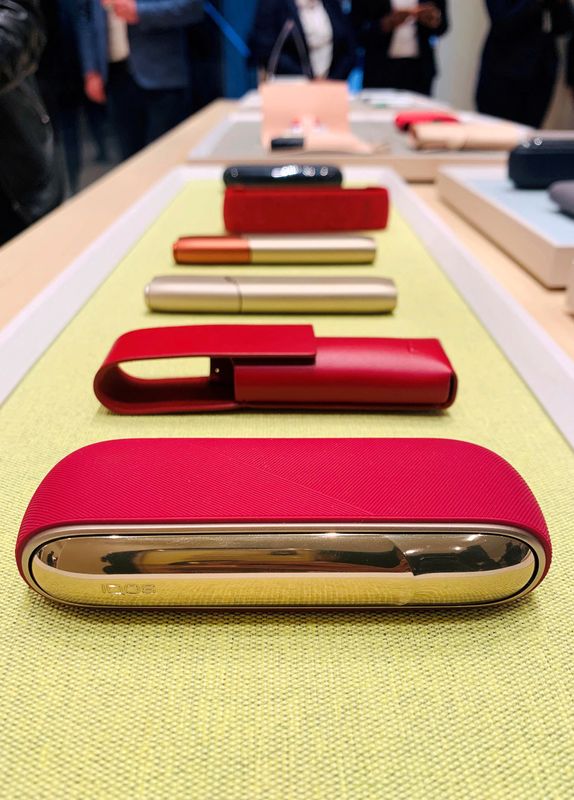This post was originally published on this site
https://i-invdn-com.investing.com/trkd-images/LYNXNPEK2R0QE_L.jpgLONDON (Reuters) -Philip Morris International is preparing to launch its flagship heated tobacco device IQOS in Austin, Texas, indicating it will be the first testing ground for its U.S. entry, job adverts on LinkedIn show.
IQOS, the top selling heated tobacco device globally, sits at the core of the world’s biggest tobacco company’s efforts to transform its image from a purveyor of cigarettes to a driving force behind the switch to healthier options.
Investors are waiting to see if Philip Morris (NYSE:PM) (PMI) can create a market for heated tobacco in the United States, where vaping currently dominates.
The country offers PMI a substantial base of new users and, potentially, a hefty new income stream that could prove transformative as it tries to generate an increasing proportion of revenue from products other than cigarettes.
PMI spent the vast majority of $10.7 billion of expenditure on smoking alternatives between 2008 and 2022 on IQOS’ development.
The Marlboro maker had said it planned to launch the device in four cities in two U.S. states starting with one city in the second quarter, ahead of a broader roll-out likely in 2025. However it had not released further details, including around which cities or states it is targeting.
Job adverts posted on LinkedIn reveal that the company is laying the groundwork for an IQOS launch in Austin, Texas. The adverts, posted this month, include positions as field sales representatives, territory managers and retail sales advisors.
Whether or not IQOS takes off in the United States will be significant given the market’s size. Euromonitor estimates total U.S. nicotine sales, excluding nicotine replacement therapies, were worth some $143.6 billion in 2022.
While cigarettes accounted for the vast majority of that, Euromonitor forecasts their value will shrink by 30% by 2027. The value of vapes, heated tobacco products and other alternatives will rise by 36% over the same period, it says.
TESTING GROUND
Products like IQOS work by heating up sticks of ground up tobacco without burning them in an attempt to avoid the harmful chemicals released via combustion.
Heated tobacco products have so far been largely absent from the U.S. market aside from limited sales of IQOS managed by PMI’s former parent, Altria (NYSE:MO), and another product offered on a limited scale by British American Tobacco (NYSE:BTI).
PMI paid Altria $2.7 billion for the rights to market IQOS in the United States in 2022. BAT (LON:BATS) has subsequently cast doubt on the category’s potential in the country, where vaping and other alternatives are already well established.
Texas offers an interesting trial market given its broad demographics, ranging from super rural to highly urban, said Brett Cooper, managing partner and analyst at Consumer Edge, an equity research firm. He added that diverse cities like Austin, Houston and Dallas provide access to a wide range of consumer groups.
Tobacco taxes in the state are also relatively low, according to Centers for Disease Control and Prevention (CDC) data. The excise tax rate on a pack of cigarettes in Texas stood at $1.41 in September 2023, the data shows – far higher than the 17 cents in Missouri but also well below the more than $5 per pack in New York.
Texas introduced new laws around e-cigarettes in January, restricting devices that resemble food products like candy or fruit juice, or that include a symbol or celebrity image targeted at minors or depict cartoon-like fictional characters.

PMI bets IQOS can win a 10% share of U.S. tobacco and heated tobacco unit volume by around 2030.
Ahead of IQOS’ launch, the company has also been building out its lobbying firepower across the United States. The company wants two thirds of its revenue to come from “smoke-free” products by 2030.

